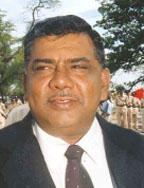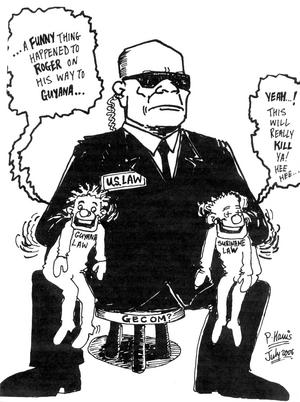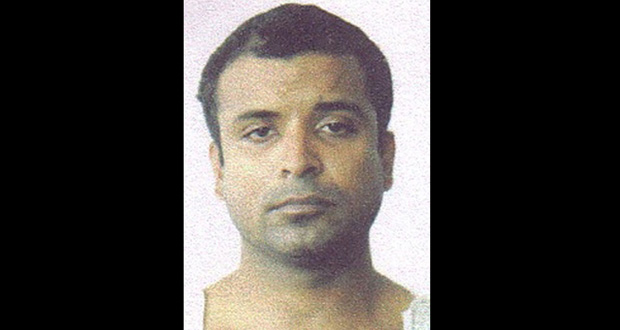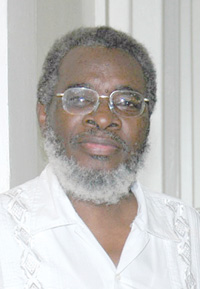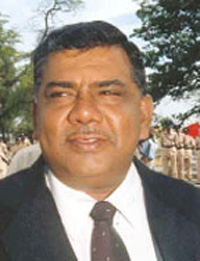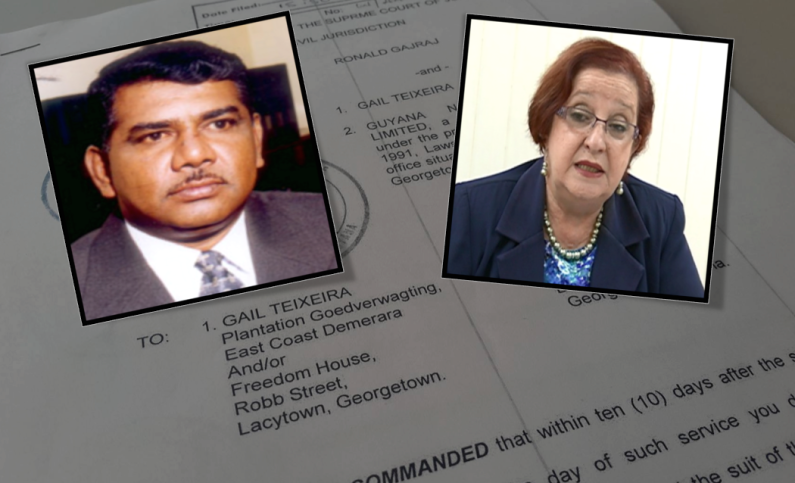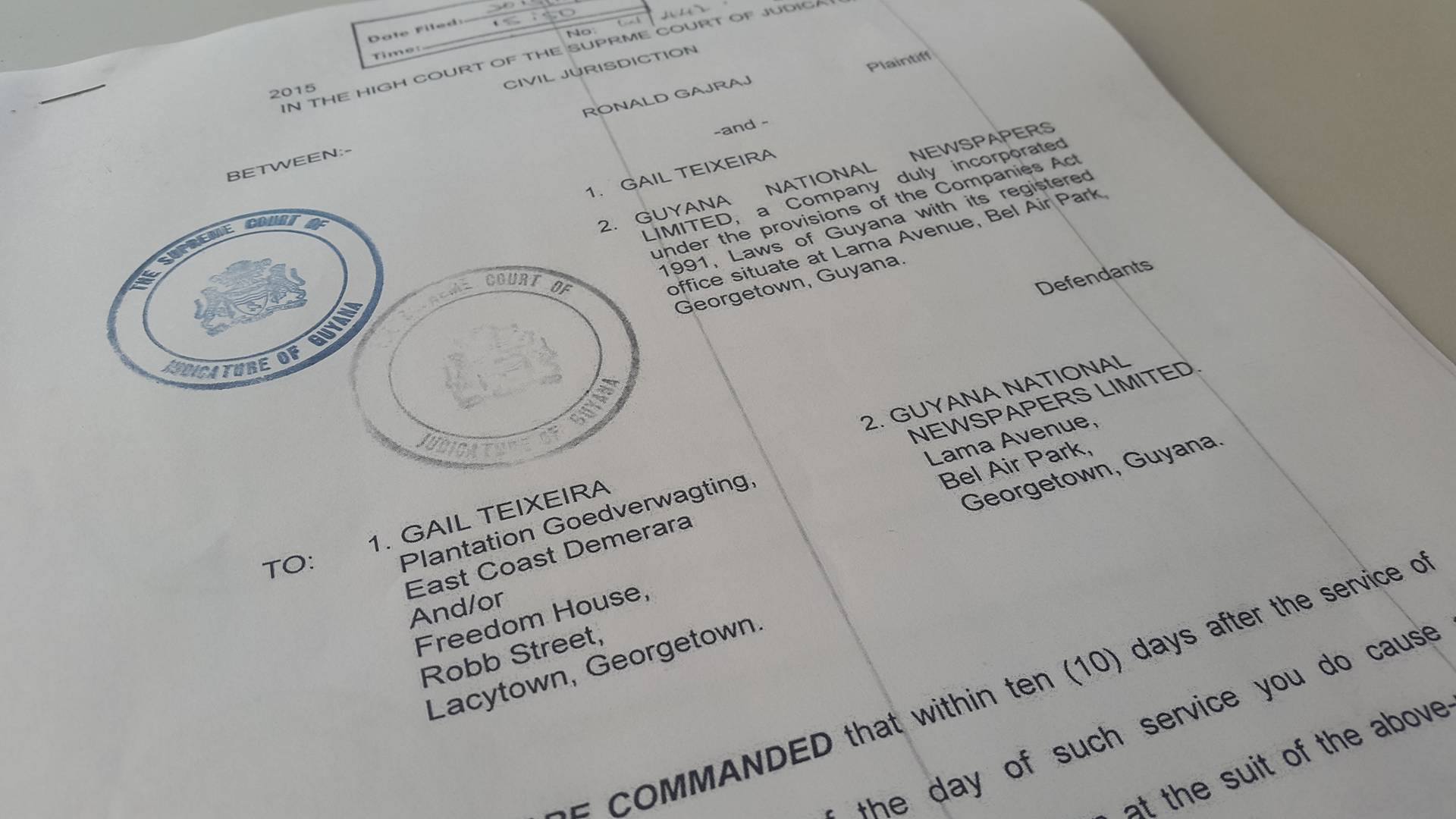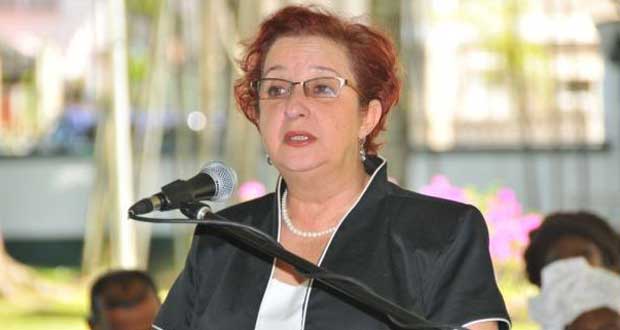
Wikileaks cable… Teixeira accused Gajraj of visa racketeering
TOP executive of the People’s Progressive Party (PPP) and former Home Affairs Minister Gail Teixeira had told the United States back in 2005 that her predecessor Ronald Gajraj was corrupt and was involved in visa racketeering with another senior official, whom she was forced to sideline. After being forced to resign under international pressure for his alleged involvement in a “death squad” here, Gajraj was posted to head Guyana’s mission in New Delhi. This revelation was made in a cable dated December 28, 2005 and written by then Charge d’Affaires at the US mission here, Michael Thomas.
The cable is one of several that whistle-blowing website Wikileaks, has released. Headlined, “Teixeira struggling to control Home Affairs Ministry,” the cable detailed a conversation between Teixeira and senior officials of the U.S. Embassy here on December 23, 2005, during which she requested a consular briefing on trends in fake Guyanese civil documents detected by the Consular Section.
During the meeting, the cable said, Teixeira acknowledged that there “is quite a lot of corruption in the immigration division.” She was also quoted as saying that she had tried to deal with it by firing many employees in the ministry, but that her greatest fear was that these corrupt former employees will sell their knowledge of the system, and ability to forge documents.
For example, she is quoted in the cable as saying that former Home Affairs Ministry Security Policy Coordinator Sultan Kassim, “is very closely linked to a number of networks, particularly the Chinese,” and describing a slush fund financed by Brazilian fees for work permits that Gajraj and Kassim had run.”
FAKE DOCUMENTS
According to the cable, unable to pin any direct evidence of illegal activity on Kassim, Teixeira said she dealt with the matter by sending him on long-term leave. She also asked the U.S. Embassy to send a Consular Officer to brief her on fraudulent birth and marriage certificates issued by the local General Register Office (GRO) that had been detected by the Consular Section. Teixeira was particularly worried; the cable said, that she was not getting full and accurate details on these incidents in her briefings with the GRO.
At her requested meeting with a consular official from the U.S. Embassy, Teixeira was told by the Deputy Consul of the problematic birth and marriage certificates submitted to the Consular Section in Immigrant Visa cases, which appeared to have been genuinely issued, using GRO paper and seals, but which were not obtained in accordance with Guyanese law.
“The clear implication is that the GRO is issuing civil documents improperly,” the cable quoted the consular official as telling Teixeira.
According to the cable, in a common example, someone whose original birth certificate does not list a father was able to obtain a new certificate from GRO that includes the purported father’s name. However, according to the U.S., Teixeira confirmed this was not legal without the father at least going to court and accepting paternity.
MARRIAGE CERTIFICATES
Regarding marriage certificates, Guyanese marriage certificates state whether the marriage is by licence, by notice, or by banns. The latter two methods require both the bride and groom to be in Guyana for weeks before the marriage. The U.S. also noted that in Guyana’s widespread business marriages, the Guyanese-American petitioner will usually remain in the country less than a week, and use an unscrupulous marriage officer to wed them and obtain a certificate. This was confirmed by Teixeira, who also noted that these “quick-visit” marriages were invalid if done by notice or banns.
Teixeira, the cable noted, expressed what seemed like genuine displeasure at these improperly or unlawfully issued civil documents involving GRO, explaining how she is already trying to fix the problem. According to the cable, Teixeira had confronted the GRO about similar incidents, but the GRO had denied responsibility for the fraudulent documents.
VISA ISSUANCE
On the matter of visa issuance, according to the cable, Teixeira mentioned having several suspicious visa cases on her plate at the time. She said back then that the flow of people wanting to enter Guyana on the most unlikely of pretexts, could relate to trafficking in persons, the gold and diamond industries, arms-smuggling, or terrorist links.
She said then, too, that she would like to work with the United States government to prevent these activities and had taken some files to the Guyana Police Force’s Special Branch for them to check Interpol databases or any other sources, since the ministry at the time had no computer resources to conduct such checks.
Additionally, the cable mentioned that following up on discussions of a November 17 meeting with Indian tour operators (reftel), Teixeira said she was taking a hard line with tour operators applying for visas for large groups of young, single businessmen purportedly travelling to Guyana for tourism. According to the cable, Teixeira described the steps she’d taken to curtail irresponsible or corrupt consular operations at Guyana’s diplomatic posts, but mentioned that she had encountered “great resistance in foreign missions trying to tighten up on visa issuances” and lamented that the Ministry of Foreign Affairs and other ministries did not understand that visa officers overseas are an important part of the country’s security apparatus.
Teixeira had also told the U.S. that she’d managed to bring Beijing visa operations under control, and that Guyana had ceased issuing visas for Chinese to join their families here, although Chinese are still granted visas to work in the timber and sugar industries. She also detailed that a corrupt system operated in China involving the mission and the ministry.
Meanwhile, in response to a question from the U.S., Teixeira was quoted as saying that the visa situation in India was “manageable.” She also said that all visa applications from South India came to the Ministry of Home Affairs (MoHA) in Georgetown for adjudication, thereby allowing greater scrutiny. She was also of the belief that Southern Indians who wanted a Guyanese visa would not travel all the way to New Delhi to apply in person at the High Commission there.
In response to a direct question about visa operations at the Guyana mission in New Delhi, Teixeira told the U.S.: “Delhi doesn’t deal with us.”
According to the cable, when the conversation turned to Delhi, “the normally animated Teixeira slowed down and spoke carefully and deliberately. She was noticeably less forthcoming about the situation in Delhi than about any other topic during the two-and-a-half-hour meeting.”
She did suggest, however, that her relationship with the Delhi Embassy was dictated by orders from higher authority. Teixeira said Guyana’s embassy in Suriname and Guyana’s honorary consuls (particularly in Africa and Israel) are now her biggest problems on the visa front.
NO IMMIGRATION POLICY
In Teixeira’s own words, according to the cable, Guyana does not have an immigration policy. “There is little control over visa issuance. Immigration authorities cannot control or keep track of who enters the country. The government loses immigration cases in court. Deportation is expensive and often ineffective,” she was quoted as saying.
The cable mentioned that in the past, all immigration decisions contained a note that refused applicants could appeal directly to the minister, a practice Teixeira said she had abolished. Teixeira said disorder in the immigration process was embarrassing to the government.
FIGHT CORRUPTION
The U.S. concluded, according to the cable, that the meeting confirmed that Teixeira had genuinely wanted to fight the corruption and inefficiency that had a crippling effect on her broad portfolio (including GRO, immigration, the attorney-general and the courts, and the police force). “Long-standing smuggling routes that transfer illegal migrants from India, Pakistan, and China through Guyana to the U.S. and Canada are ideal for exploitation by terrorists and others who would do us harm,” Michael Thomas wrote in the cable.
Thus, he said it would be strongly “in U.S. interest to find ways to assist Teixeira in vetting suspect visa applications and tightening control of civil documents.” Thomas pointed out that unfortunately, although Teixeira criticised her predecessor “Gajraj’s imperious, direct control over the ministry’s workings, she has only slightly loosened the reins of control herself. This may reflect her very valid concerns over both corruption and competence within the MoHA, or the PPP’s habit of centralised decision-making and micro-management,” Thomas wrote.
He said, too, that the fact that Teixeira was involved herself personally in sensitive visa applications supported either hypotheses. “Another possibility is that the position has overwhelmed her,” Thomas said, adding that the embassy highly rated her as “an honest, forthright interlocutor. However, more than a few Guyanese insiders think of her as a lightweight, better suited to her previous position as Minister of Youth, Culture, and Sport.”

